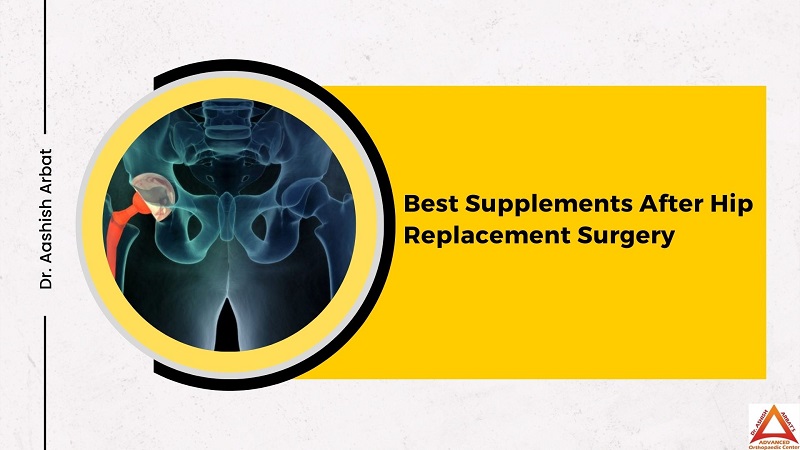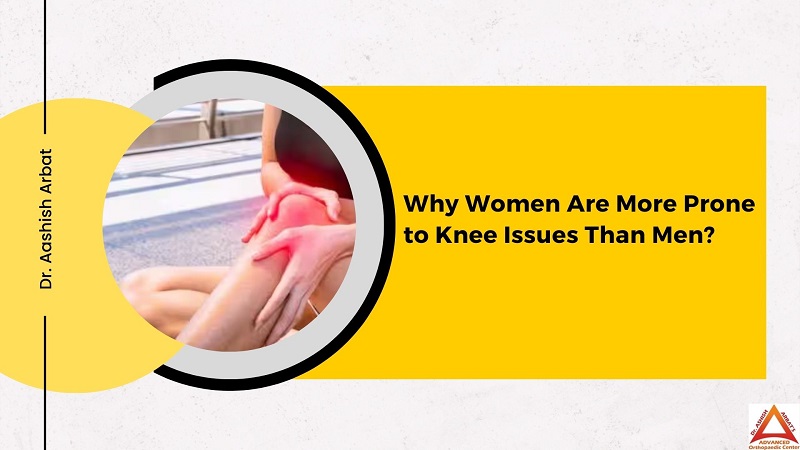Best Supplements After Hip Replacement Surgery
horeover, Healing from hip replacement surgery necessitates cautious awareness to diet and nutrients, as these can notably impact your recovery and mobility. This is where comes the importance of the best supplements after hip replacement surgery. These supplements can speed up the healing process, perk up overall mobility, strengthen bones and muscles, and ensuring you get back to your daily routine more conveniently. Surgery is often a necessary treatment, however, there are many ways we can add to the success of the surgery, reduce side-effects and speed healing. In this blog, Dr. Aashish Arbat explains the key supplements that help your post-operative journey, including minerals, vitamins, and healthy fats, and how each supports in enhanced healing. Furthermore, following a balanced diet both before and after surgery is vital for proper recovery. Well, it is as well important to have a knowledge on foods to avoid after orthopedic surgery to prevent potential mishaps. With a solid knowledge of nutritional practices and supplements, you’ll be well-prepared to boost your recovery. Looking to understand the benefits of taking supplements after orthopedic surgery? Yes, after surgery, consuming a few specific supplements may promote wound healing, enhance immunity, and reduce bruising, swelling, and inflammation. Post hip replacement surgery, your body needs additional support to recover properly. Let’s explore the best supplements needed after orthopedic surgery, dietary tips on eating healthy after hip replacement surgery, and foods to stay away from to support you in your journey of successful recovery. Best Supplements After Hip Replacement Surgery Vitamin C Omega-3 Fatty Acids Calcium Vitamin D Focus on Healthy Fats Magnesium after hip replacement is essential as it can help maintain the cartilage around your new hip joint. Magnesium supports in muscle function and bone health. Including magnesium supplements can help prevent muscle cramps and help overall recovery. Dr. Aashish Arbat, a reputed hip replacement surgeon in Pune has been successfully treating patients suffering from hip and knee joint problems. He mentions the importance of magnesium after knee replacement surgery. Moreover, he states the benefits of keeping magnesium levels in the optimal range. He recommends taking nuts and seeds, fiber-rich whole grains, low-fat dairy products, legumes, vegetables, dark chocolate, fruits, greens, water. Vitamins to Avoid After Surgery After surgery, it is recommended to avoid certain vitamins that can potentially hinder the recovery process. Here are some vitamins to be cautious about: Vitamin E: This vitamin has anti-clotting properties that can lengthen bleeding time during surgery. Fish Oil: Similar to Vitamin E, fish oil has blood-thinning properties that can be troublesome during healing. Licorice Root: This supplement can may interfere with healing as it can affect blood pressure. It is always suggested to discuss with your healthcare provider before taking any supplements post-surgery to ensure a safe recovery. Foods to Avoid After Hip Replacement Surgery Planning for surgery? · Learn which foods might slow down your recovery or lead to complications. Avoid too much vitamin K while you are taking blood thinners. Limit coffee and alcohol consumption. Vitamins to Take Before Hip Replacement Surgery Nutritional supplements influence outcomes for individuals undergoing major surgery, particularly in major surgeries like hip replacement surgery. Protein Needs After Hip Surgery To confirm you’re getting the protein you need for post-surgery healing, include a variety of protein-rich foods in your diet, such as: Lean meats like chicken, turkey, and fish Dairy products like Greek yogurt and low-fat cheese Plant-based options like beans, lentils, tofu, and tempeh Eggs Nuts and seeds Protein supplements (consult your healthcare provider before using these) Are you suffering from hip joint pain? Hip replacement surgery may help. Dr. Dr. Arbat, a hip replacement doctor in Pune, specializes in this surgery. After a thorough examination and evaluation, a treatment plan will be developed that may include surgery. Conclusion Taking the best supplements after orthopedic surgery is necessary for successful recovery. Supplements like calcium, vitamins C and D, and omega-3 fatty acids, along with healthy fats, give vital support as your body heals. Besides these supplements, eating healthy before and after hip replacement surgery can notably support your healing, offering your body the nutrients it requires to regain strength and mobility. It’s also essential to be mindful of foods to avoid after orthopedic surgery processed foods and sugary snacks can interfere with healing, potentially slowing down progress. FAQs What I wish I knew before hip replacement surgery? I wish I was aware of the impact of Hip Replacement on lifestyle, potential side effects and complications, recovery time and rehabilitation, proactive prevention and early intervention before hip replacement surgery. How long does the recovery process take after hip replacement? To put in simple words, individual recovery varies. Patients generally resume most activities within three to six months. Complete recovery, including full mobility and strength, might extend to a year. Enjoy a new, stronger joint!


